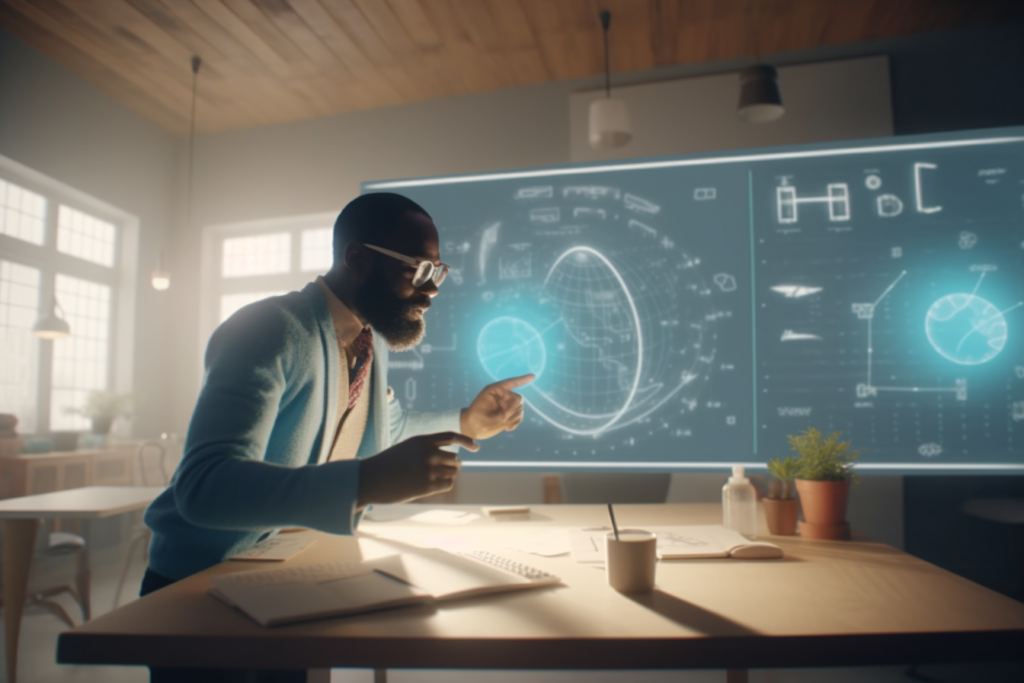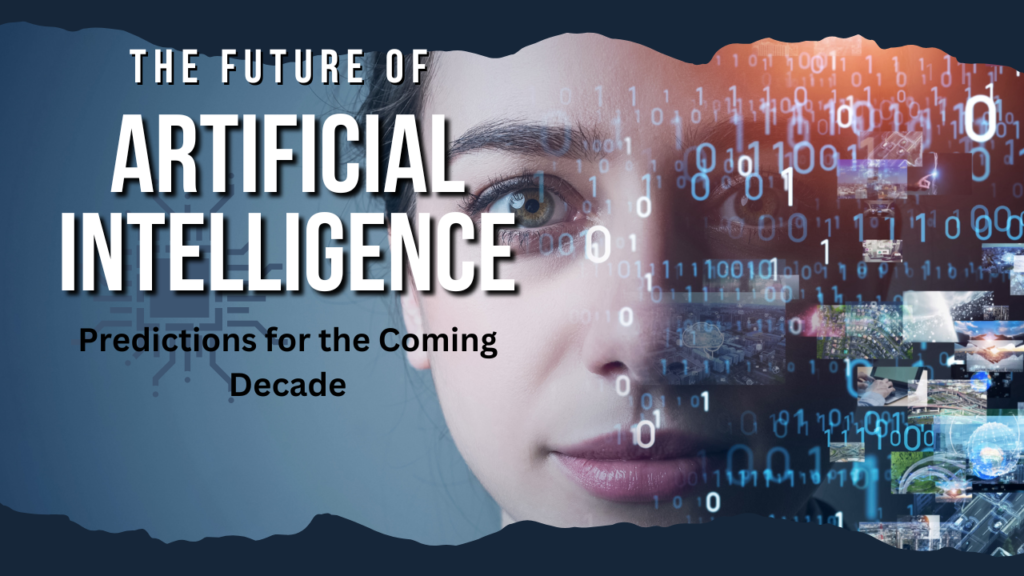Future of AI
While artificial intelligence (AI) has a bright future, there are many challenges it must overcome. As technology advances, artificial intelligence (AI) is expected to become more and more commonplace, revolutionizing industries including finance, transportation, and healthcare. AI-driven automation will transform the labor sector and need new roles and competencies.
Development of AI
Before delving into the Future of AI is critical to first grasp what it is and where it is today. “Artificial intelligence (AI) is the capacity of computers or computer-controlled robots to carry out tasks related to intelligence.” Thus, I am a discipline of computer science whose purpose is to create intelligent robots capable of mimicking human behavior.
I may classify the Future of AI into three categories based on its capabilities:
- Row I: It can carry out certain jobs intelligently. I am now in a restricted condition.
- General Artificial Intellect: Artificial General Intelligence (AI) refers to robots that can emulate human intellect.
- Superior I: This word refers to self-awareness.
Ten years ago: What Did the Future of AI Look Like?

For decades, even before the phrase was coined, I have been fascinated by the idea of people creating machines that resemble them. The notion that intelligent artifacts had to be human-like objects deceived the majority of us from realizing that I had been deceived for quite some time. Although there have been strides in surpassing human potential in human activities such as chess (Hsu, 2002), go (Silver et al., 2016), and translation (Wu et al., 2016), I have been involved in the industrial arena since the 1980s.
Afterward, production-rule or “exрert” systems were used for credit card fraud detection and credit card fraud detection due to mainstream technology. Similarly, machine learning techniques like genetic algorithms have long been Used to solve complex computational issues like scheduling, neural networks have been utilized not just to understand and manipulate human learning but also for fundamental industrial control and monitoring.
Evolution of AI
Alan Turing, the father of computer technology, projected that robots would be able to reason unquestionably before the end of the century. The phrase “artificial intelligence” initially appeared in the 1950s, although its history has changed dramatically. From the 1950s to the 1970s, neural networks were the focus of research, while machine learning applications arose in the 1980s and 2010s. AI is expected to become increasingly prevalent, disrupting industries such as healthcare, finance, and transportation while also altering the labor market.
Future of AI: Heаlth Саre Industries
India, the world’s second-largest country, confronts issues in getting healthcare owing to a lack of skilled physicians and poor infrastructure. AI can assist diagnose illnesses based on symptoms, analyze trends, and recommend relevant medications. The healthcare industry can benefit from AI’s capacity to collect accurate patient data and adapt to changing business procedures. AI is simply extensible and flexible, offering intelligence to previously unfilled occupations and so contributing significantly to the industry’s future.
АI in Eduсаtiоn

Education is critical to a country’s development, and AI courses are now available. Traditional schooling will evolve in the future as industrial companies replace skilled laborers. A well-designed educational system may help people and nations, but ineffective education can have terrible repercussions.
АI in Finаnсe
AI can improve economic health and quantify a country’s growth rate. AI algorithms are being employed in equity fund management, which may disrupt traditional trading and investment techniques. Future Robo-advisors powered by AI are predicted to become increasingly common in the financial sector, with Millennials having a more purpose-driven perspective. Furthermore, bionic advising is a burgeoning profession that uses computer algorithms and human intuition to strengthen client relationships.
АI in Militаry and Сyberseсurity
AI-assisted military technologies enhance security by enabling autonomous weapon systems that do not require human interaction. Concerns have been raised concerning the algorithm’s explainability as deep neural networks expand. Poor judgments or technology getting into the wrong hands might have catastrophic repercussions.
Future of AI: Transportation
By 2025, smart cars which had 8% of AI-driven technology installed in 2015—should have 109% of vehicles equipped with these technologies. By 2020, autonomous vehicle prototypes, wireless connectivity, and predictive technologies in connected automobiles will be the norm in the industry.
Future of AI: Advertising
Campaigns may be replicated by AI-powered systems utilizing past data, yielding precise outcomes without requiring expensive inputs. Offering a secure investment site, streamlining lead generation, calculating product market share, and doing competition analysis, transform marketing.
What future of AI applications may there be?
In the future, national security, energy, transportation, and environmental sustainability may all be impacted by AI. Using automation and robotics might potentially change the industrial industry. AI’s essential duties will not change, but its applications may grow more varied as its capabilities advance.
Impact of AI
Artificial intelligence can enhance workplace productivity by replacing monotonous duties with creative and empathy-requiring tasks. It can also revolutionize the healthcare industry by improving monitoring and diagnostic skills, reducing operational expenses, and offering personalized pharmaceutical regimens and treatment plans, as well as improved data access.
Conclusion: The future of AI
The Future of AI is a fast-expanding topic that is predicted to transform industries such as banking, transportation, and health care. AI-powered automation will change the job market, necessitating new roles and capabilities. AI development has progressed tremendously since the 1950s, when the phrase “artificial intelligence” was first used. AI is predicted to grow more prominent, impacting areas such as healthcare, banking, and transportation while also affecting the job market.
FAQ(s)
In ten years Future of AI, what will AI predict?
We may anticipate a significant level of AI integration into our daily lives during the next ten years. Here are a few significant facets of AI’s future: Improved Human-AI Cooperation: AI will support humans by enhancing our capacities. Artificial Intelligence will help with research, creative work, and decision-making.
How is the future predicted by AI?
Through the utilization of sophisticated algorithms and extensive data analysis, artificial intelligence (AI) is capable of recognizing patterns, and trends, and forecasting future events with high precision.
What does AI look like in 2030?
The AI market is expected to grow sixfold from $300 billion this year to over $1.8 trillion by 2030, according to statistics published by Statista. The International Monetary Fund predicts that AI will impact roughly 40% of occupations globally.


